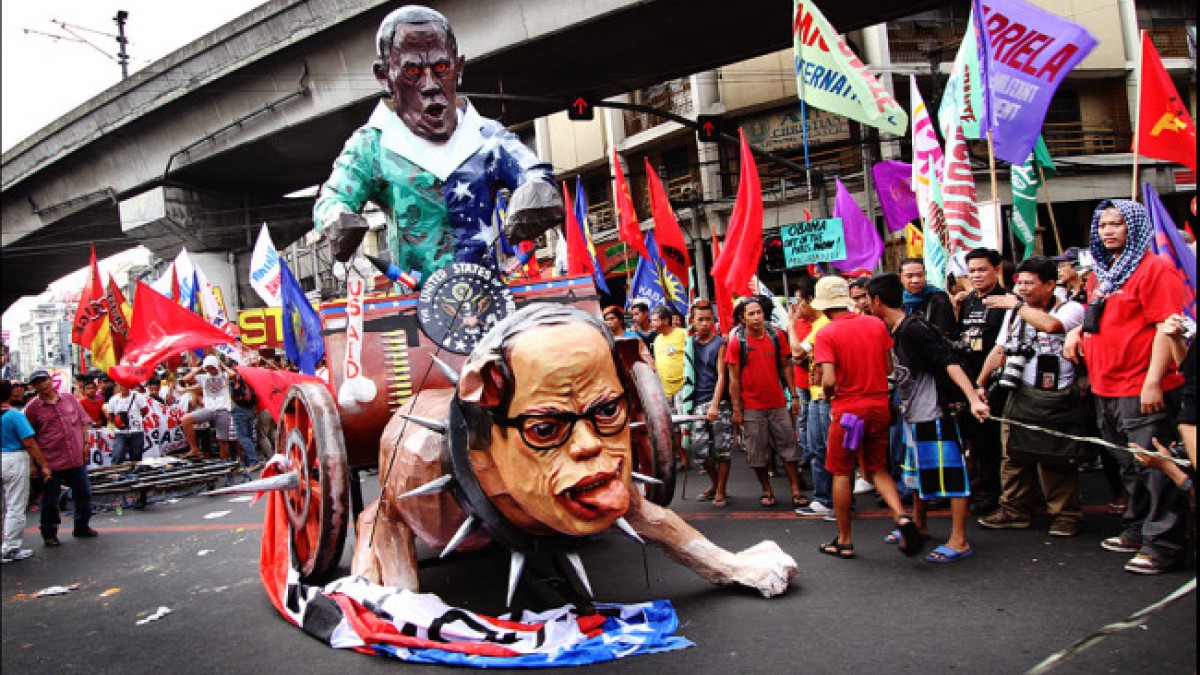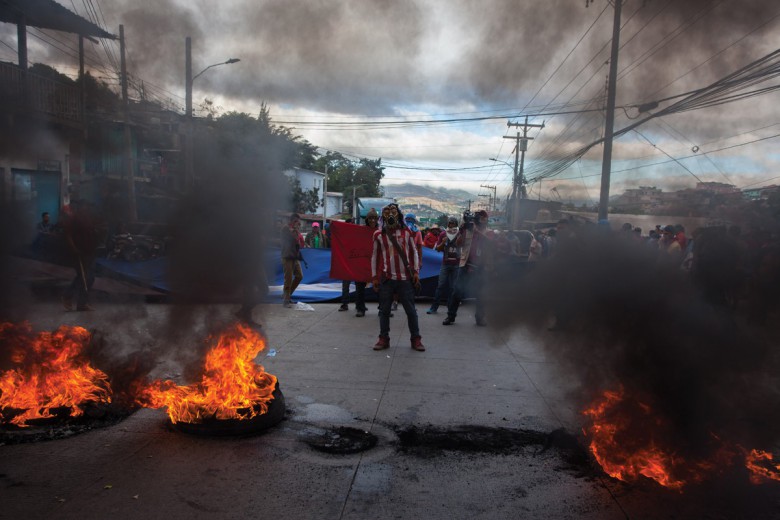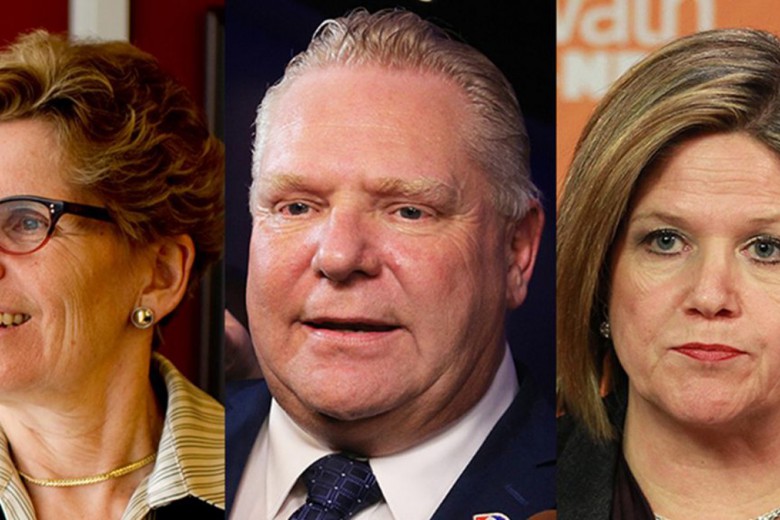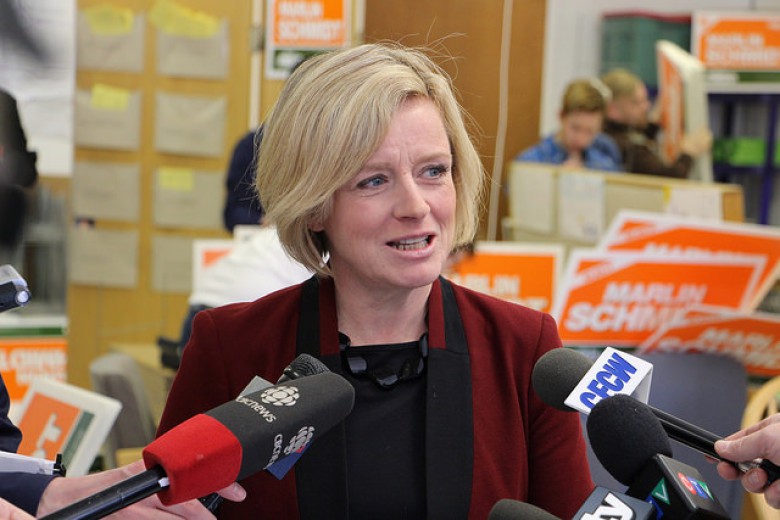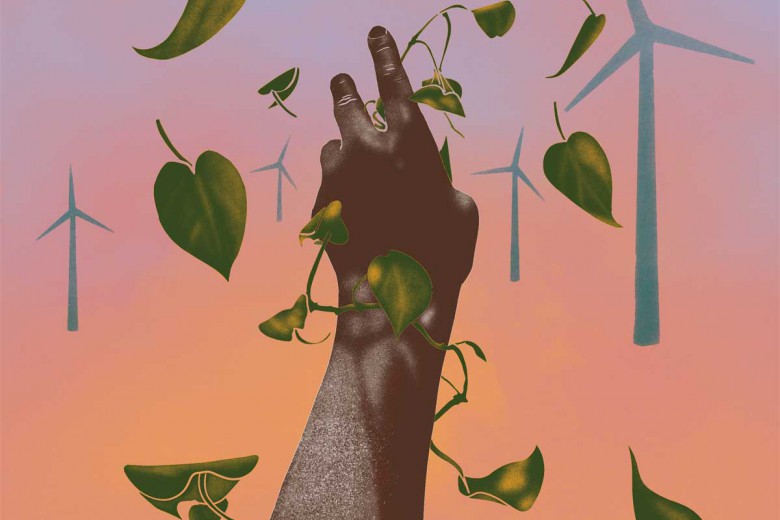The other day, my Tito Boy (Dad’s elder brother) was telling me about how he felt that his brother made a mistake in taking us to Canada. Their father, my Lolo Dandoy, was a member of the Filipino Scout Rangers (under U.S. command) and was awarded an American military medal for his service during WWII. Captured at Corregidor with General MacArthur’s U.S. troops and forced into the “Bataan Death March,” he took a chance and attempted escape by jumping off a bridge they were marching over. He was shot in the side by Japanese troops while trying to swim away. He was lucky to be rescued and brought back to health by Aeta Indigenous people who were in a nearby boat. He went on to join a rebel guerrilla force against the Japanese. My Lolo was always pro-American – despite all the broken promises (like payment, a pension, and U.S. citizenship) they gave to those brave men and women that sacrificed for them wearing their uniform during that war.
My Tito Boy’s story was all about how we should have become American citizens instead of Canadian. It echoes the undying wish of many Filipinos that the Philippines should be a U.S. state. “They took Hawaii and Guam,” I’ve heard said many times in the last few days, “so why not the Philippines?” Ignoring that Guam isn’t a state but a protectorate, the yearning is a real one, the belief that if only Kuya (older brother) America would take us in that we would finally rise out of hardship. But after a long history of conflict and overt imperialism, America simply doesn’t want formal control anymore: exploiting and governing is too messy a job – one better left to the locals.
Obama just visited the Philippines. The U.S. presidential visit came and went on 28-29 April and most people were very welcoming of him and the new PH-US Enhanced Defence Cooperation Agreement to surrender more sovereignty over to the USA. The Philippines is one of the few countries left in the world that generally still believes in “America the good.”
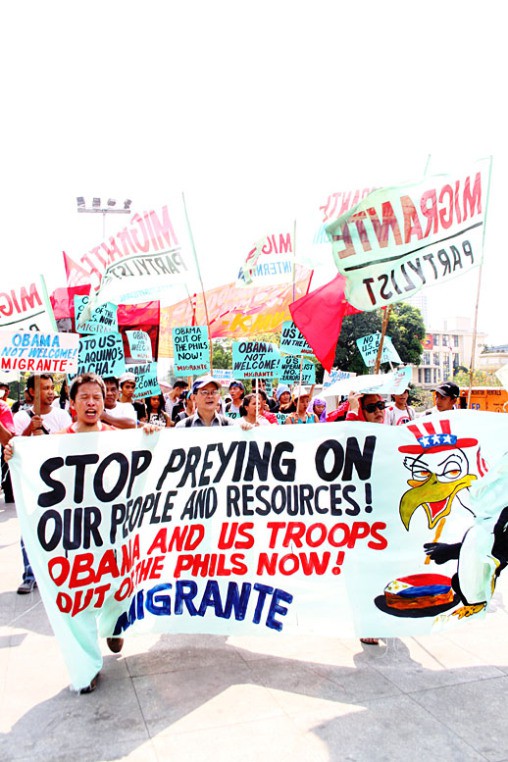
In the days before and during Obama’s visit, the morning news had audience tweets and word-on-the-street segments where people would exclaim their joy that older brother (or even “papa” a couple times) America would come to protect us against big bad “Red” China. Many openly called for war. They were equally vocal about the thousands of protesters (of whom I was one) that filled the streets to present the other point of view: that the U.S. isn’t here to care and protect its little brother (I guess that’s the 2014 version of Little Brown Americans as we were “lovingly” called during the American occupation of 1902-1946). On the passenger vans I heard people ask why people still protest when America is here to help against China, that we need them because our government is too corrupt to help its own citizens, that maybe if we are nice to them they will ease visa restrictions to the States, etc.
These are odd arguments to me, and fascinating in how they show human nature’s great propensity toward hope (without struggle) rather than reality. Obama himself has been unequivocal in his statements that the American return to the Philippines is not to protect the country from China but to “help” build the Philippines capacity against “terrorism” (read: local anti-government rebellions). That the U.S. considers China a friend. In the new agreement signed by the B.S. Aquino government three hours before Obama’s arrival, the Philippines has again welcomed the official/unofficial return of American bases – technically there will be no U.S. bases, but they will be allowed to build military structures to be owned by the Philippine government that Philippine personnel will not be able to access without the permission of the U.S. So no official bases, but there will be bases. And many are expressing support.
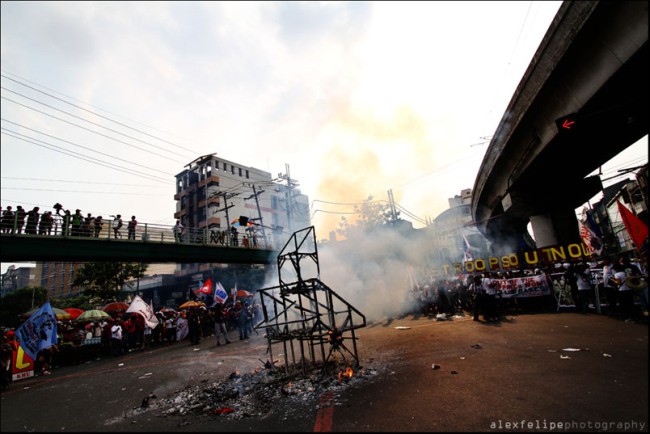
I don’t blame the people for this mindset. The level of hardship continues to worsen, and no elected official seems able to fix it – so a saviour from outside seems attractive enough. But there is another point of view that isn’t nihilistic: to recognize that the problem is systemic, and that solving this issue will require us to choose to sacrifice (rather than to have sacrifices forced upon us). Most already openly admit that the Philippine government is corrupt and geared towards the rich. The difficult part is to realize that America isn’t going to save us, they benefit too much from Filipino poverty, and the Philippine elite will never willingly give up its power (because face it, most of you wouldn’t either). So it’s this last step that is the hurdle. An actual Philippine democracy isn’t just going to be given. It is not just going to happen.
I understand why the people hesitate. But I also understand that we’ve been hesitating for decades, and that each passing decade brings greater hardship. Things are pretty well hard enough ain’t it?
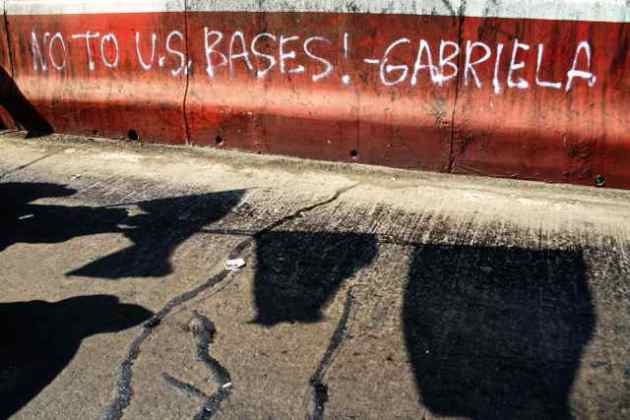
Try as you may though to control the mindset of a population, the more overtly repressive the regime, the more you promote resistance. In the countryside, New People’s Army guerrillas continue to wage a simmering civil war. And at the same time the county has one of the most organized, yet diverse, progressive movements in the world. The BAYAN alliance brings various sectors (including workers, women, and Indigenous peoples) together to fight as a united force. Their battlefield is parliamentary, judicial, on the streets, and in the media. Obama’s visit sees this dissent fully active. Progressive party-list congress people are vocal in the house as well as in the media, the constitutionality of the new agreement is being contested in court, and thousands protest on the street burning effigies and facing police truncheons and water canons. The national democratic movement is alive, kicking, and an inspiration to Filipinos who continue the struggle began with the Katipunan and Andres Bonifacio against Spanish colonialism.
My Philippines knows that America has never been our friend. But the Philippines is also made up of many who see things another way. Both coexist, and both are made up of the people that I still hold out hope for, that I still believe can stand on their own two feet, even if it means working up the nerve to struggle for a new reality.


